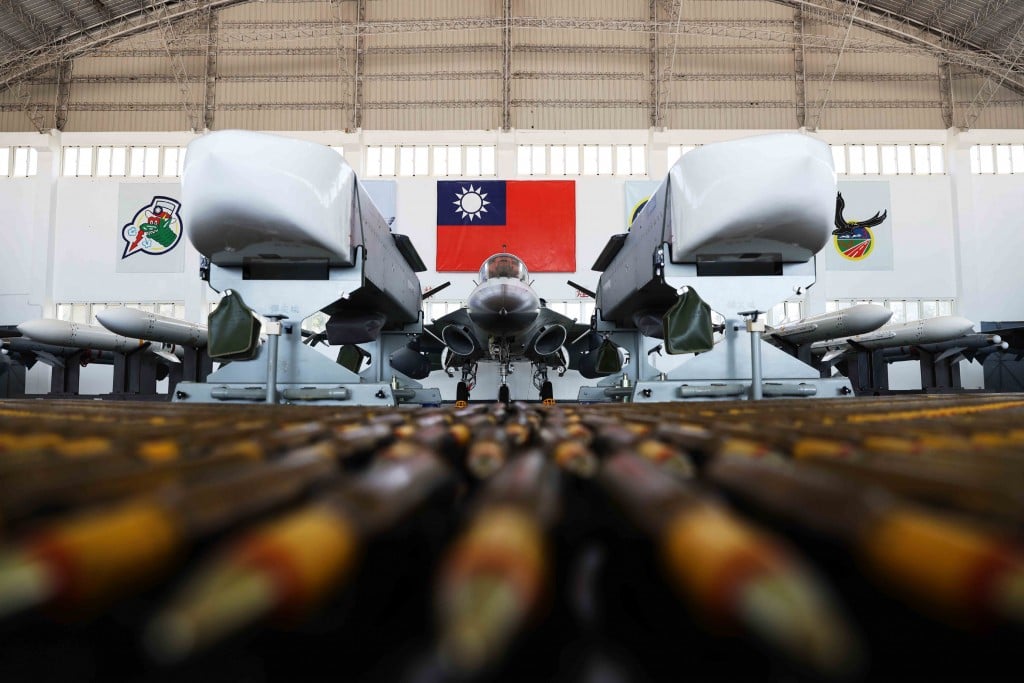John Grady

Taiwan must take the necessary steps to ensure its own defenses – from upgrading air and missile defenses and raising reserve forces’ readiness to protecting vital infrastructure like its water supply – to keep China at arm’s length, three experts on Pacific security said Wednesday.
“Taiwan is nowhere where it needs to be” in beefing up its own defenses, Michael Mazzarr, associate director of the strategy and doctrine program at RAND’s Arroyo Center, said during an Atlantic Council event.
“Power projection capabilities are significantly challenged” if crisis turns to conflict with China. Taiwan could struggle not just to sustain military operations in the first island chain, but also in the homeland as it tries to protect American infrastructure like pipelines.
Calling Xi Jinping ”a true believer in reunification” of Taiwan with the mainland, Michael Mazza of the American Enterprise Institute said the Chinese president may be waiting for a signal from Beijing’s rapidly modernizing People’s Liberation Army that the army is ready to invade the island.
Chinese leaders may feel compelled to move, Mazzarr said, as tensions escalate and options become more limited, much as the Japanese felt compelled to attack Pearl Harbor.
“The gaps are growing wider” between Beijing and Taipei over their shared history, future economic development and Taipei’s commitment to democracy, Mazza added. The Nationalist government of China, following its defeat by the Communists, fled to Taiwan in 1949, and still calls itself the Republic of China. Ever since, the People’s Republic of China under the Communists has regarded Taiwan as a breakaway province.
After the United States formally recognized the People’s Republic diplomatically in the 1970s, Washington adopted a “OneChina” policy.” The move allowed the United States to maintain a relationship with Taiwan, including the sale of defensive weapons through a special relations act.
Defense Secretary Lloyd Austin, speaking in Singapore Tuesday, said the United States remained committed to the policy and also the Taiwan Relations Act. “We will not flinch when our interests are threatened. Yet we do not seek confrontation” with China in the Indo-Pacific, he said.
Taiwan is not a treaty partner with the United States.
As The Atlantic Council event was taking place, guided missile destroyer USS Benfold (DDG-65) transited the Taiwan Strait, marking the seventh US transit of the strait this year, U.S. 7th Fleet announced.
Franklin Kramer, Atlantic Council board member and former Pentagon official specializing in international security, said the United States must work with allies, particularly Japan and Australia,” to make clear” in advance they would support Washington in a conflict with China over Taiwan.
Later at the event, he noted the “very helpful statement from Japan … likewise Australia” when it came to deterring Chinese aggression against Taiwan.
Despite new statements of support for Taiwan, Mazzarr and Mazza remained skeptical over how willing allies and partners would be to come to Taipei’s assistance in a shooting war. The United States’ response to a potential Chinese blockade of Taiwan or its seizure of smaller islands in the Taiwan Strait is also unsettled.
Kramer added, “if there is a conflict with China, it is not likely to be contained” between Washington and Beijing, meaning Tokyo and Canberra could be drawn into a war between the two great powers.
All sides must avoid an escalation to nuclear weapons use, Mazzarr and the others agreed.
Mazzarr said the results of a nuclear war would be “catastrophic.”
Since Taiwan is not a treaty partner with the United States, the executive branch and the Congress need to spell out what the nation’s commitment is to Taipei in a crisis. “What are our national interests” there, Mazzarr asked. He added, “there are lots of ways to support [Taipei] … other than increasing the U.S. military posture in the Indo-Pacific.”
Panelists also noted Europe, particularly NATO, has shown increased interest in China’s ambitions in the region and globally. France and the United Kingdom have stepped up their maritime presence in the Indo-Pacific, exercising with the United States and other allies and partners there to show unity on questions of freedom of navigation and to counter Chinese bullying against smaller nations.
Tokyo and Canberra mustunderstand they would be ending all business with their largest trading partner in case of armed conflict, panelists said. They both needed to develop alternative supply chains and resilient infrastructure in light of expected Chinese cyber attacks in a conflict.
Kramer added that Japan and Australia should be investing now in advanced weapons, like the High-Mobility Artillery Rocket System and training in how to better combine command and control of their forces and American and combined air and naval operations, as in the recently concluded Pacific Vanguard and Talisman Sabre maritime exercises.
“Deterring Beijing, not Taipei” should be the goal, Mazza said. He wants direct American military aid, not only sales, between the United States and Taiwan.
No comments:
Post a Comment